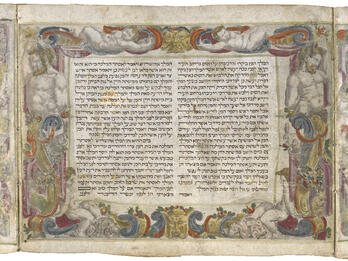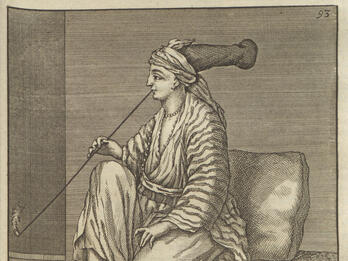Judah Moscato
Judah ben Joseph Moscato was born in Osimo, Italy. Following an edict issued by Pope Pius V in 1569 expelling the Jews, Moscato settled in Mantua. There he became the community’s official preacher and subsequently, in 1587, chief rabbi. Moscato was well versed in classical philosophy, contemporary Italian literature, and kabbalah. Among his major works are Kol Yehudah (Voice of Judah; 1594), a commentary on Judah Halevi’s Kuzari, and Nefutsot Yehudah (The Dispersed of Judah; 1598), a collection of sermons. Moscato often cited non-Jewish sources, justifying this with the claim that all great philosophers and writers were the disciples of Jewish kings and prophets. He applied the same concept to Renaissance music. Moscato may have preached in Italian, as non-Jewish scholars apparently came to hear his sermons. Many preachers applied his methods and ideas, creating a new school of homiletics, and he came to be known as one of the most important preachers and authors among Jews in Renaissance Italy. He also composed liturgical poems and dirges.



